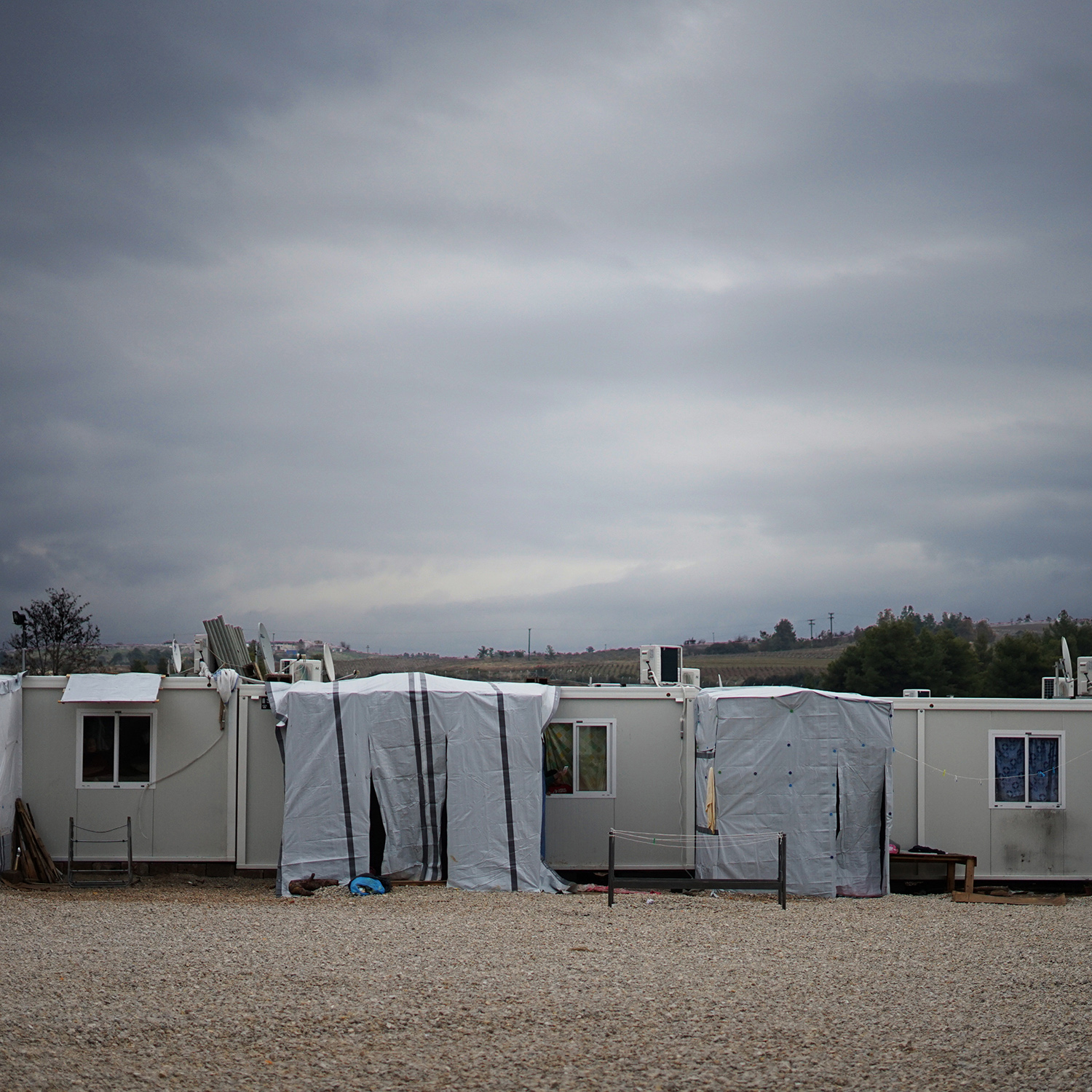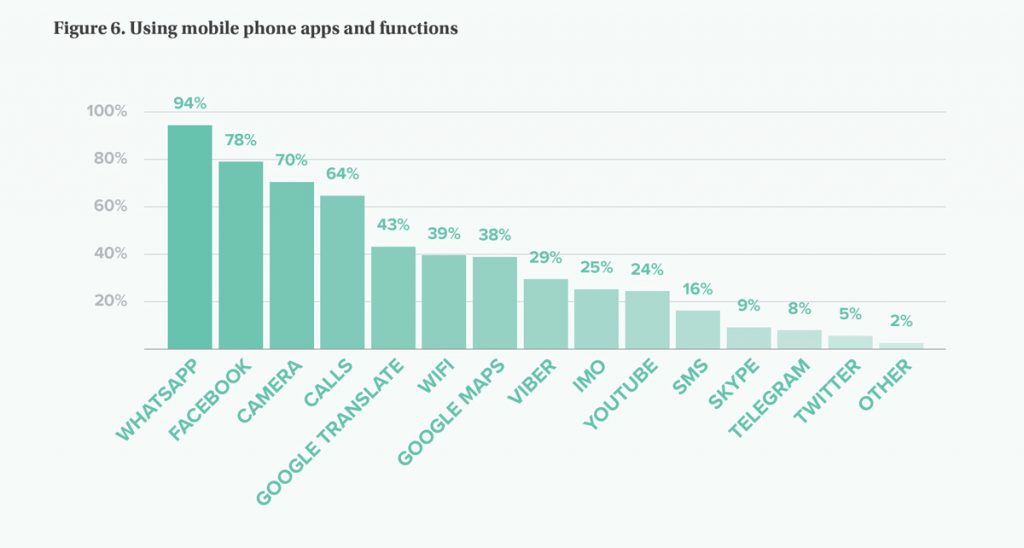Data & Society and the Harvard Humanitarian Initiative’s “Refugee Connectivity: A Survey of Mobile Phones, Mental Health, and Privacy at a Syrian Refugee Camp in Greece” provides new evidence of the critical role internet connectivity and mobile devices play in the lives and wellbeing of this population. Findings are based on a survey of 135 adults amongst the 750 residents at Ritsona Refugee Camp in Greece.
Refugee Connectivity

Mark Latonero,
Danielle Poole,
Jos Berens
Report Summary
Study shows importance of internet connectivity, mobile devices to the privacy and mental health of Syrian refugees in Greece.
Data & Society and the Harvard Humanitarian Initiative’s “Refugee Connectivity: A Survey of Mobile Phones, Mental Health, and Privacy at a Syrian Refugee Camp in Greece” provides new evidence of the critical role internet connectivity and mobile devices play in the lives and wellbeing of this population. Findings are based on a survey of 135 adults amongst the 750 residents at Ritsona Refugee Camp in Greece.
The report is the result of 2017 field research by Data & Society, the Harvard Humanitarian Initiative’s (HHI) Signal Program on Human Security and Technology, and Centre for Innovation at Leiden University. Lead authors of the report are Mark Latonero, Ph.D. of Data & Society, Danielle Poole of HHI/Signal and the Harvard School of Public Health, and Jos Berens, formerly of Leiden University.
Key Findings
- Women are less likely to own a mobile phone than men – 94% of men own a phone, compared to 67% of women. Mobile phone access is “important” to over 80% of refugees in this study.
- Approximately 2 of every 5 refugees participating in this study may be classified as moderately to severely depressed according to the validated depression scale used in the survey. Each additional day an individual used a phone in the past week was associated with a reduction in their probability of being depressed.
- Eighty-six percent (86%) said they would not be concerned about giving their personal information to a UN official. Yet for Facebook, 30% expressed concern about giving the social media site their personal information, 52% were unconcerned, and 15% were unsure. Thirty-three percent (33%) said they have been asked to provide information about themselves that they would rather not have given.
- Ninety-four percent (94%) use WhatsApp, 78% use Facebook, about 38% use Google Translate and Google Maps, and 9% use Skype.
- Privacy, trust, and information security are important factors for refugees. Many respondents had a sense of the people and platforms they would or would not trust with their sensitive information.
- Refugees have nuanced views on privacy and information sensitivity. Response organizations must protect the privacy rights of refugees and understand that different technologies receive different degrees of trust.
- The study demonstrates the need for further research and assessment of social context for any technology deployed for refugees.
- In order to be able to deploy technological intervention effectively and responsibly, say the authors, social factors specific to refugee populations need to be understood.


